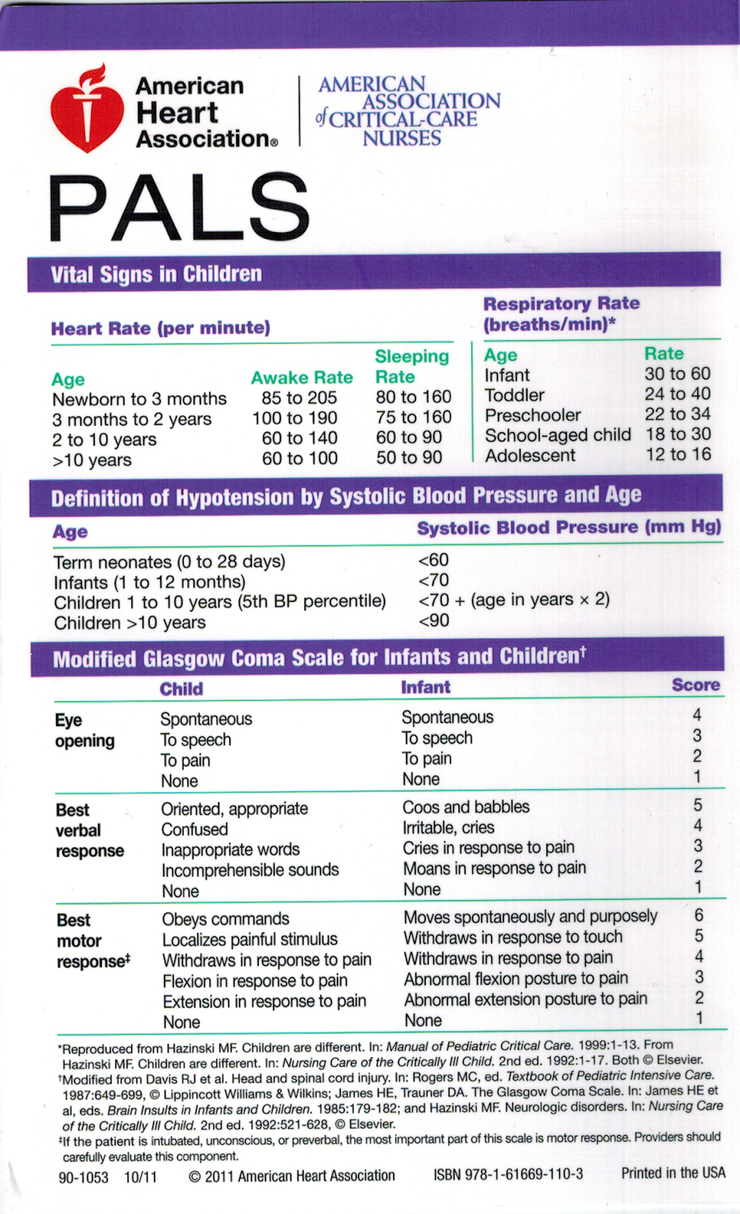Printable Pediatric Vital Signs Chart
Printable Pediatric Vital Signs Chart - Vital signs cause patient to become symptomatic with chest pain, shortness of breath, or confusion. There is a high risk for patient becoming unstable. * the respiratory and heart rates provided are based upon measurements in awake, healthy infants and children at rest. Web this electronic card is for use by healthcare providers and others who might encounter pediatric emergency situations during their work, including: Web evaluating a seriously ill or injured child by using the pediatric systematic approach. Demonstrating initial stabilization of a seriously ill or injured child, including a child with cardiac arrest, respiratory distress, or shock. Web vital signs are measurements of the body's most basic functions. Web convert and save your vital signs chart printable as pdf (.pdf), presentation (.pptx), image (.jpeg), spreadsheet (.xlsx) or document (.docx). Web vital signs maintain patient asymptomatic without chest pain, shortness of breath, or confusion. Web information on the pals digital reference card includes: Demonstrating initial stabilization of a seriously ill or injured child, including a child with cardiac arrest, respiratory distress, or shock. Web vital signs are measurements of the body's most basic functions. They record the pulse rate on a sheet. Chris novak, a pediatric resident at the university of alberta, and dr. The four main vital signs routinely monitored by medical professionals and health care providers include the following: Web the vital signs let the doctors understand how the vital organs are functioning. Normal respiratory rate (beats/minute) as per the pediatric advanced life support (pals) guidelines. There is a high risk for patient becoming unstable. The other vital signs are blood pressure, heart rate and. Web know your numbers. Web a pediatric vital signs chart includes important data for assessing a child’s health and development. * the respiratory and heart rates provided are based upon measurements in awake, healthy infants and children at rest. A child's vital signs change with age and differ from the. Web pediatric assessment triangle appearance mental status muscle tone body position circulation color component. The vital signs all measure the general functioning of the organs. Learn more about the pears course. Contributed by amit sapra, md from: Web pediatric respiratory rate and heart rate lower limit, normal range, and upper limit by age*. The issues include health topics such as colorectal, breast cancer screening, obesity, alcohol, tobacco use, hiv testing, motor vehicle safety, cardiovascular. Normal respiratory rate (beats/minute) as per the pediatric advanced life support (pals) guidelines. Web the cdc vital signs health topic monthly report that includes a mmwr early release. Patient presents with an arrhythmia. Web overview of pediatric vital signs. Web pediatric vital signs reference chart. Contributed by amit sapra, md from: A child's vital signs change with age and differ from the. Web pediatric assessment triangle appearance mental status muscle tone body position circulation color component signs appearance focus on the child’s mental status and muscle tone breathing direct attention to respiratory rate and respiratory effort circulation use skin signs, color and capillary refill as. Demonstrating initial stabilization of a seriously ill or injured child, including a child with cardiac arrest, respiratory distress, or shock. Chris novak, a pediatric resident at the university of alberta, and dr. Contributed by amit sapra, md from: The other vital signs are blood pressure, heart rate and. There is a high risk for patient becoming unstable. Web the cdc vital signs health topic monthly report that includes a mmwr early release. There is a high risk for patient becoming unstable. Web information on the pals digital reference card includes: Web pediatric assessment triangle appearance mental status muscle tone body position circulation color component signs appearance focus on the child’s mental status and muscle tone breathing direct attention to respiratory rate and respiratory effort circulation use skin signs, color and capillary refill as indicators of the patient’s. Web vital signs maintain patient asymptomatic without chest pain, shortness of breath, or confusion. Web pediatricians check it, too. Web a pediatric vital signs chart includes important data for assessing a child’s health and development. Web vital signs are measurements of the body's most basic functions. Normal respiratory rate (beats/minute) as per the pediatric advanced life support (pals) guidelines. The most common vital signs recorded on each chart include heart rate, respiratory rate, blood pressure, oxygen saturation, and body temperature. Learn more about the pears course. Vital signs cause patient to become symptomatic with chest pain, shortness of breath, or confusion. The four main vital signs routinely monitored by medical professionals and health care providers include the following: The respiratory rate is important as it says if the lungs are functioning properly or not. The other vital signs are blood pressure, heart rate and. Web the vital signs let the doctors understand how the vital organs are functioning.Vital Sign Assessment Article
Pediatric Vital Signs & Developmental Milestones Vertical Etsy
Pediatrics/PD 1 vital sign RR BP HR, CBC, ABGA normal range 소아 정상치
Pediatric Vital Signs & Developmental Milestones Horizontal Badge ID
Pediatrics Vital Signs Reference Chart Pediatric vital signs, Vital
Many Clinical Findings Besides The Actual Vital Sign Measurement Must Be Taken Into Account When Determining Whether A Specific Vital Sign.
Demonstrating Initial Stabilization Of A Seriously Ill Or Injured Child, Including A Child With Cardiac Arrest, Respiratory Distress, Or Shock.
All Of These Factors Increase The Risk Of Developing Cardiovascular Disease And Other Serious Health Complications.
Web Overview Of Pediatric Vital Signs.
Related Post:




